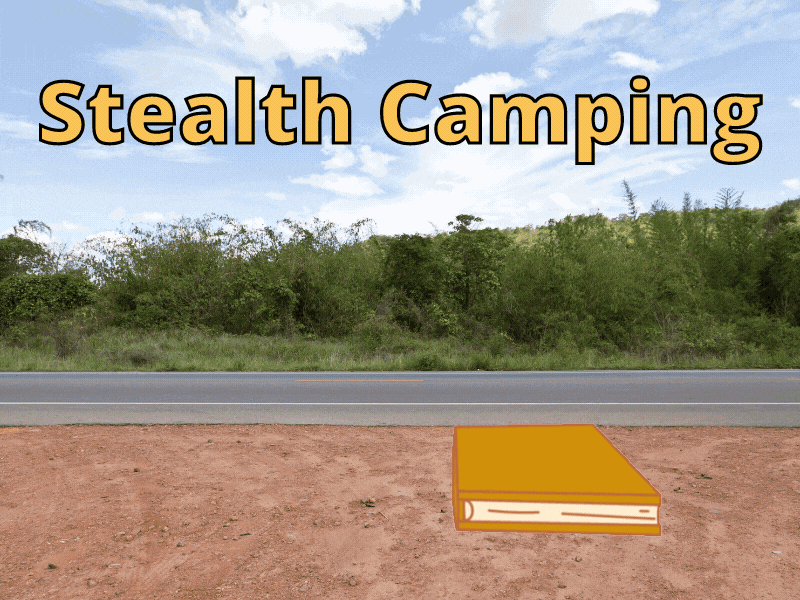Stealth camping, boondocking, dispersed camping, or wild camping. Call it what you want, but don’t deny that it’s awesome. Many people are introduced to stealth camping while searching for cheap or free facilities in which they can park their vans.
Stealth camping is to camp in a manner that you are undetected by others. It could be sleeping in a parked van, a public park, the side of a road, or a forest so that no one notices you are there. Then, you move on without being spotted.
New stealth campers are often surprised to find out that there’s an established, deep culture and a growing community that swears by the stealth camping life.
Today, we’ll be talking about stealth camping, so get ready to learn more.
What is Stealth Camping?
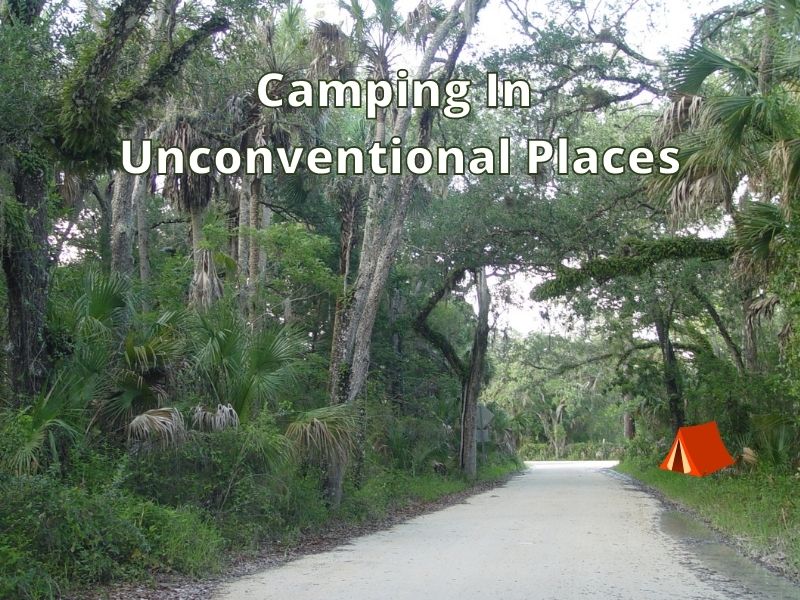
Stealth camping is often the topic of conversation between backpackers, RVers, primitivists, hunters, and tourists who don’t want to fork out the extra money for accommodation.
In a nutshell, stealth camping is the act of camping in an area that isn’t intended to be camped in. Stealth camping is also referred to as wild camping, dispersed camping, and boondocking.
Stealth camping can happen by accident when you don’t realize that the area you’ve set up your camp in isn’t actually a designated campsite and quickly move before you’re chased away.
It can be carefully planned in advance and expertly implemented so you don’t leave behind any sign that anyone even camped there.
Experienced campers know how to pack light (article), set up, and take down their gear quickly. This way, they can carry everything with them and still travel long distances.
A lot of people like stealth camping because there are no rules that need to be followed, no curfews to adhere to, and no fees you need to pay.
Is Stealth Camping Illegal?
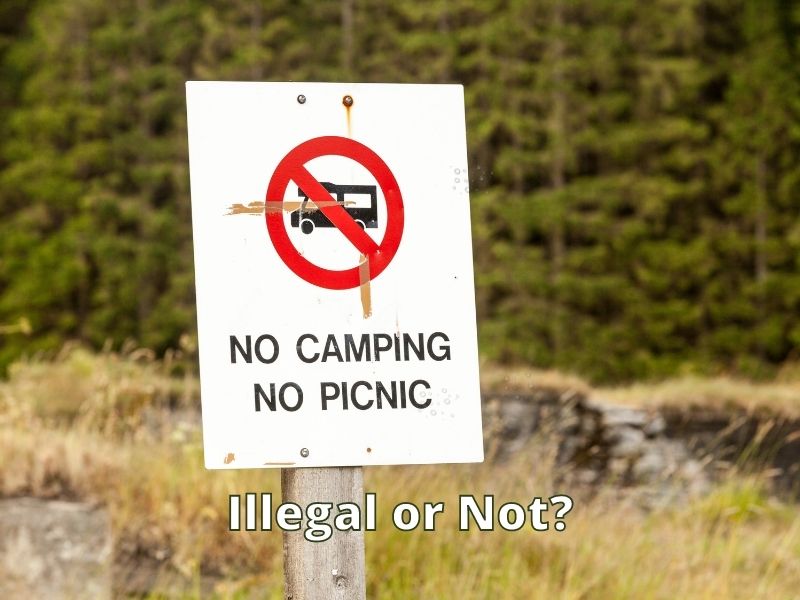
This is a tough one to answer. In some places, stealth camping is perfectly legal and can even be done on government lands without any repercussions. However, in other places, stealth camping is most definitely illegal.
The whole idea behind stealth camping is that you’re setting up camp in an area without permission, but it’s never a good idea to teeter on the edge of the law. Do your best to find out what the laws and legislations are like in the area you’re planning to stealth camp in.
Keep your eyes open for a “no camping” sign and try to locate the owner of the land before settling down on it.
We are in no way, shape, or form recommending that you stealth camp illegally.
When Should You Stealth Camp?
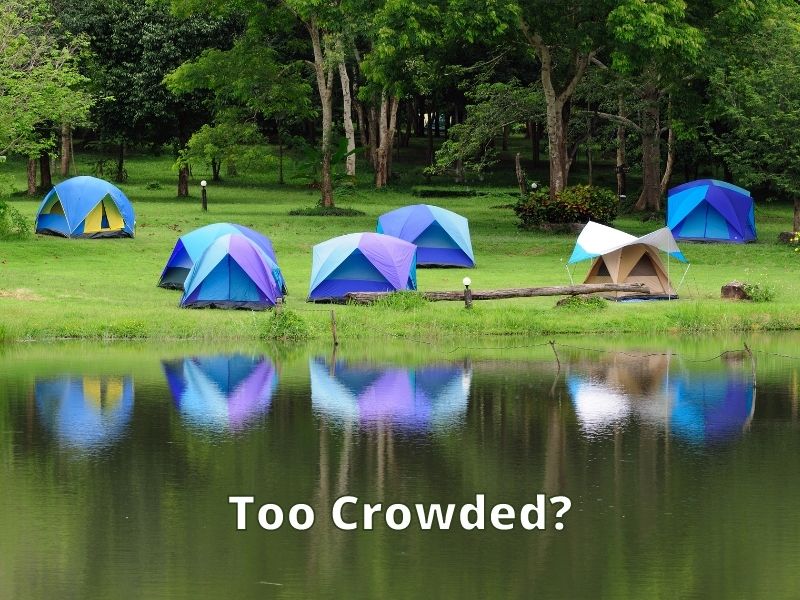
Many practical circumstances call for stealth camping. One example is in the case of bad weather prohibiting you from reaching your destination, leaving you forced to set up in an area that you aren’t supposed to until the conditions improve.
Another example is when the nearby campsite is overcrowded, and you need to wait for a space to free up.
In more impulsive settings, stealth camping is a fun way to explore new areas and connect with nature on a whole other level.
Who says that patch of flat land next to that stream won’t be the perfect spot to get a good night’s sleep?
Or that parking your van in the middle of the mountains won’t be the adventure of a lifetime?
When Shouldn’t You Stealth Camp?
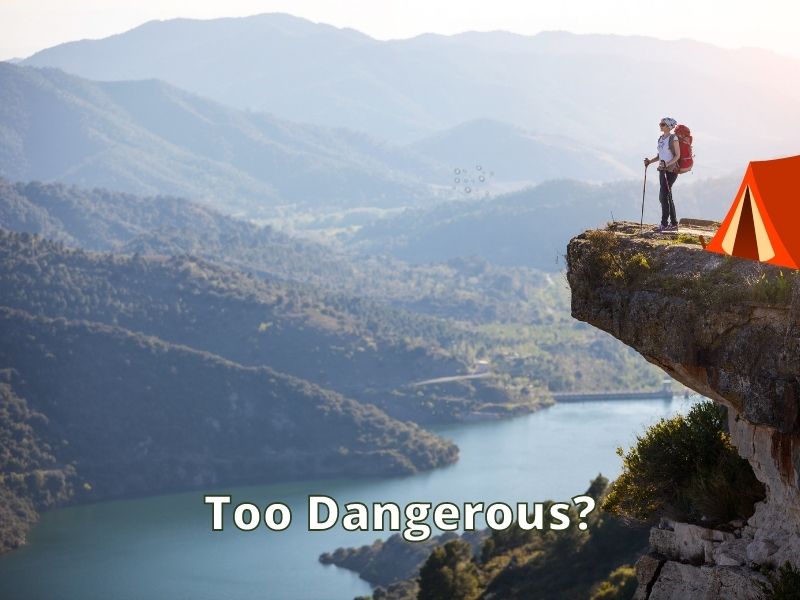
It’s important to understand that, more often than not, there’s a valid reason why campsites and parks require you to set up in particular spots.
Some areas are more dangerous than others and you need to do what you can to identify those dangers. Things like wildlife, fire rings, and not having permission from the landowner need to be considered.
For many reasons, leave-no-trace principles and stealth camping go hand in hand.
10 Tips for How to Stealth Camp
We’re going to share with you 10 tips to help your stealth camping adventure go ahead without a
hitch.
1. Get There Late and Get Out Early
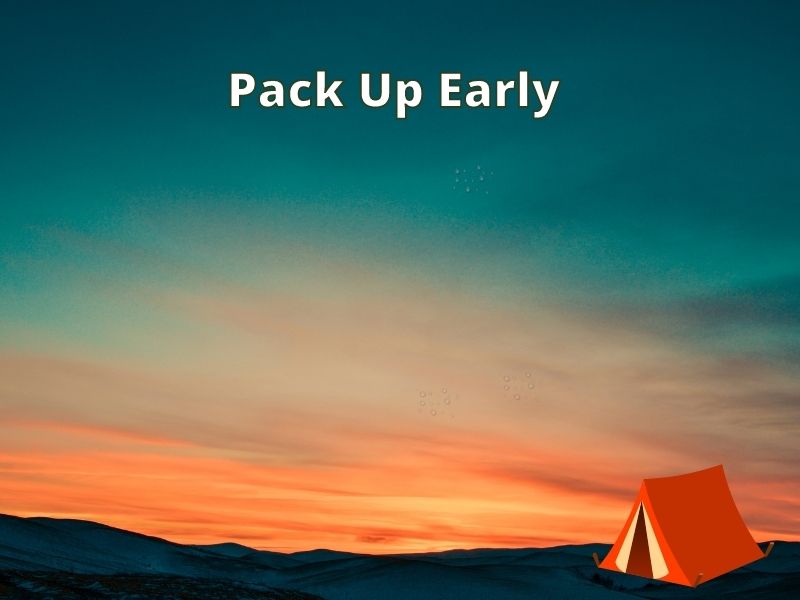
A tip that all stealth campers will agree on is this: get there late at night and get out of there early in the morning. Leave no trace that you were ever there.
Before you park, grab dinner at a restaurant or cook your own meals so that when you arrive, you can settle in for the night. Once you’ve parked, you want to make sure you don’t need anything from the outside.
Keep your doors closed and don’t draw any attention to yourself by keeping the noise down, the lights low, and activity levels to a minimum. In the morning, leave before the rest of the area wakes up.
2. Stay Away from Any Signs That Say ‘Private Property’ or ‘No Trespassing’
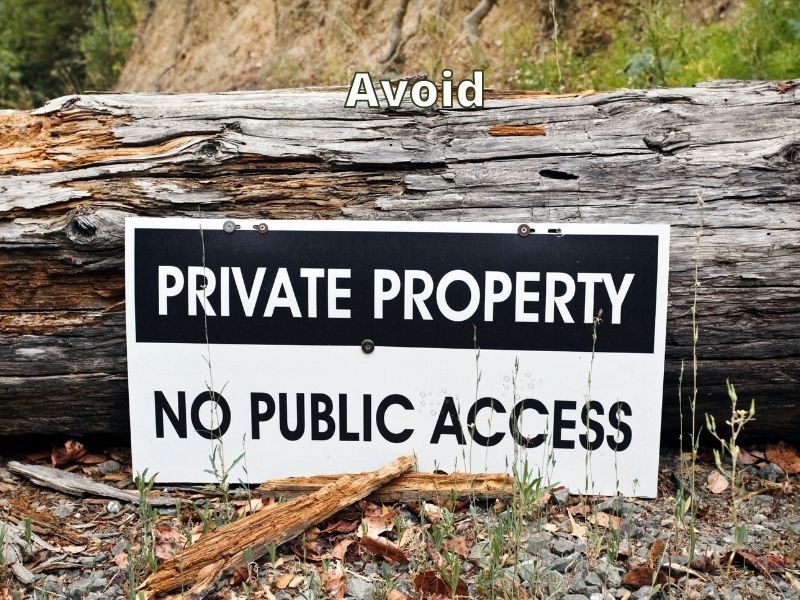
Other than “No Camping” signs, you should also look out for signs that read “Private Property”, “No Trespassing,” and, of course, “No Entry”.
Also, remember that you don’t want to attract any attention to your tent, so avoid spending too much time in areas where your tent will stand out. Avoid lingering near schools, daycares, and places where children frequent, as parents tend to be on high alert.
3. Minimize Noise and Lights
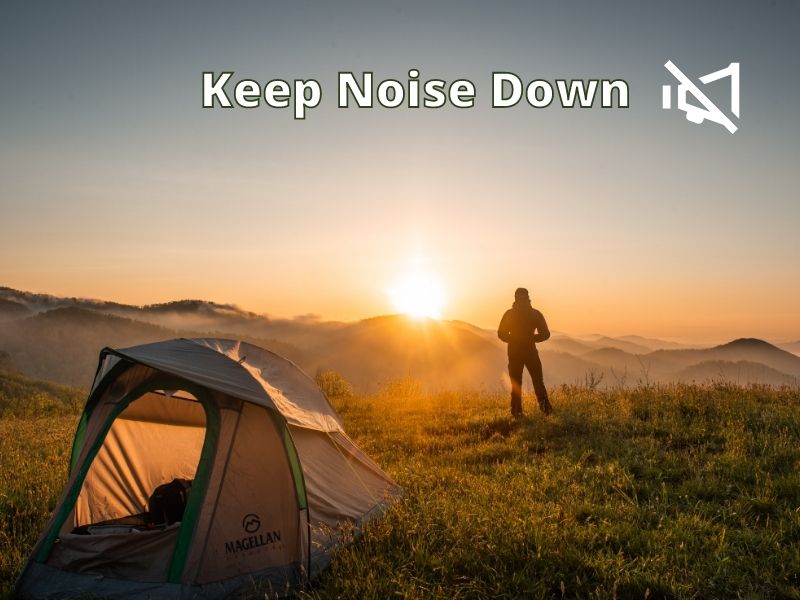
The idea is to not attract any attention to yourself, so keep the noise to a minimum at all times. Avoid electronics that emit sound, and make sure that if you have a van, the engine or radio is always turned off so that you go unnoticed.
Keep the lights dimmed and use curtains to make sure no light can be seen from outside.
4. Get Ready for Bed in a Nearby Public Restroom
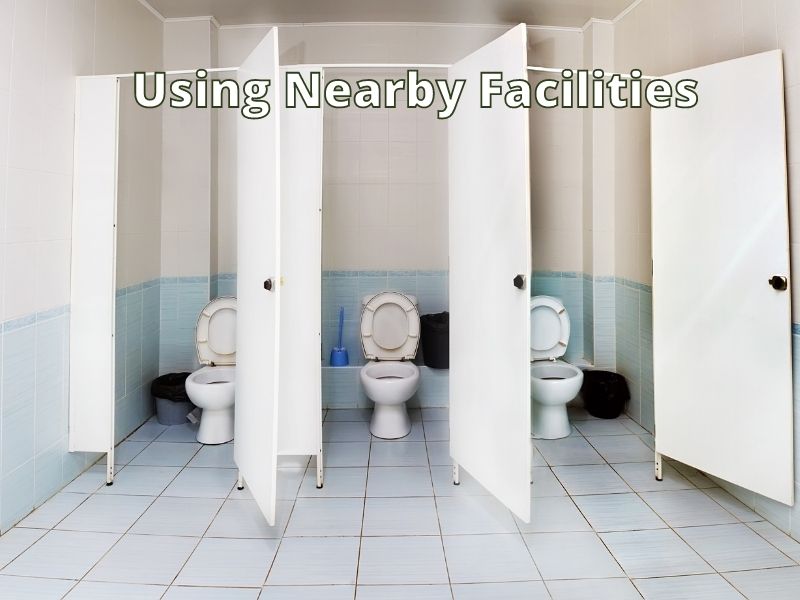
Brushing your teeth near your tent or van is a dead giveaway. Anyone who sees you will know what your intentions are.
Find a public restroom and brush your teeth in there. Also, be sure to use the toilet while you’re in there so you can get ready for sleep.
5. Don’t Get into Trouble with Police
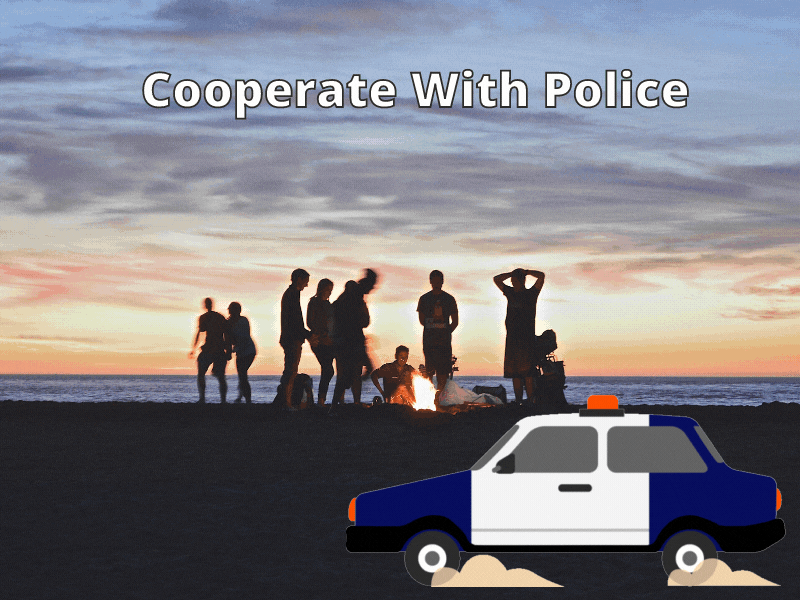
If an authority figure busts you, take it on the chin. To avoid any unnecessary problems, just follow whatever instructions the police officer, park ranger, or security guard gives you. Even if it’s late and you’re tired, don’t argue with them.
Don’t try and talk your way out of moving, and don’t give them any reason to start a more formal conversation…downtown. If you keep it civil, cooperate, and do as you’re told, you can get away with nothing more than a lecture.
6. Use a Bucket If You’ve Really Got to Go
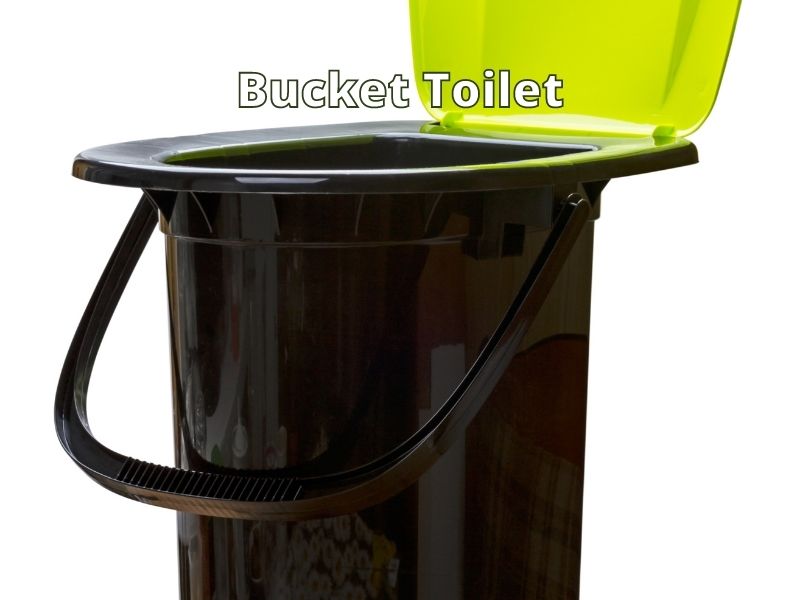
While we advise going before bed and once morning comes, sometimes you’ve got to go when you’ve got to go. If your van doesn’t have a bathroom, and you aren’t keen on forking out the cash for an emergency toilet, a bucket will do just fine.
If you using a tent, you can make what is called a cat hole. Dig a hole to bury human waste in so no one can tell. Make sure it is 200 feet away from streams or lakes. Make sure it’s deep enough (6-8 inches) so that if someone walks on it they won’t know. (int.org)
Just make sure the lid closes securely and firmly to avoid any unpleasant smells or worse – spills!
7. Avoid Drinking Water Before Bed
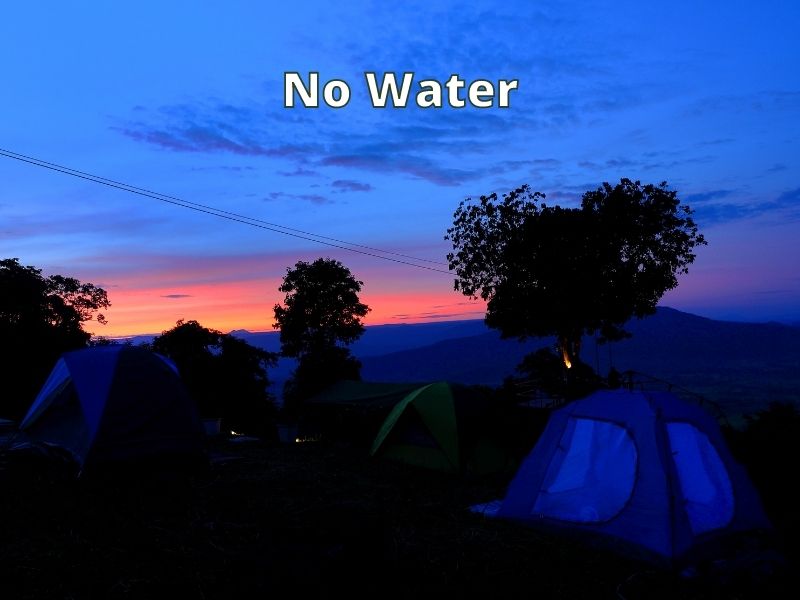
Your bladder can be your worst nightmare while you’re stealth camping. To avoid having to sneak out of your tent or van in the dead of night, don’t drink any water for at least two hours before settling down to sleep for the night. Take our word for it, or learn this uncomfortable lesson for yourself.
Make sure you have enough water (article) and follow a schedule that helps you avoid waking up at night to relieve yourself.
8. Camp in a Flat Spot
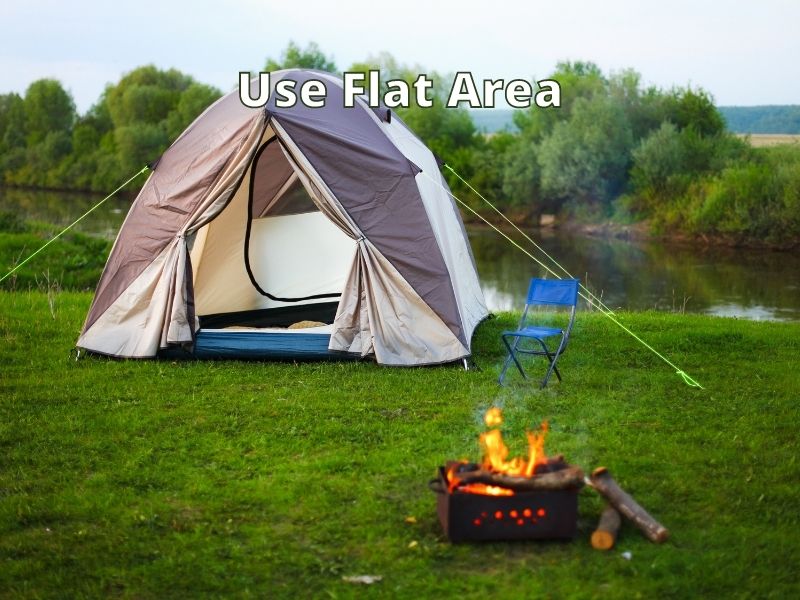
This should go without saying. Always try to park in the flattest spot possible. If you don’t have the time to find a flat area to set up in, work with the incline. Sleep with your head elevated and your feet downwards.
9. Camp Somewhere People Can’t Notice You
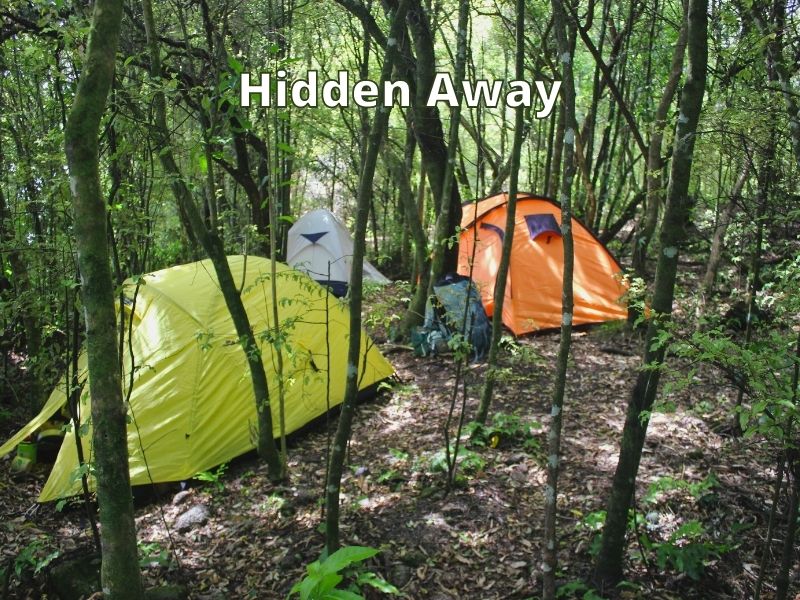
Some people say the trick to go undetected while you’re stealth camping is by hiding in plain sight. Parking in areas where other vehicles are is recommended so you blend in with them.
Other people advise the opposite and recommend parking in the shadows and keeping out of sight entirely. So, ultimately, this one comes down to personal preference.
10. Decide in Advance Where You’re Going to Stay

We get that planning your camp in advance isn’t always a possibility, but you should try your best to. At the very least, familiarize yourself with the area so that you have a general idea of where you are and what spots are ideal for stealth camping.
Bear in mind that while it’s recommended to scope out the area (article) beforehand, it’s not a good idea to actually arrive there too early. This will lead to you having to hide in your vehicle for longer than necessary and you will also increase your chances of getting caught.
Let people know about where you will be each day, and keep in contact with them regularly to help ensure your safety.
Safety Tips on Stealth Camping
When you stick to the tips we’ve outlined above, you shouldn’t find yourself in a situation where you’re unsafe.
But just in case you do, here are a few tips you can use to make sure you stay safe when stealth camping.
Check What’s Around You
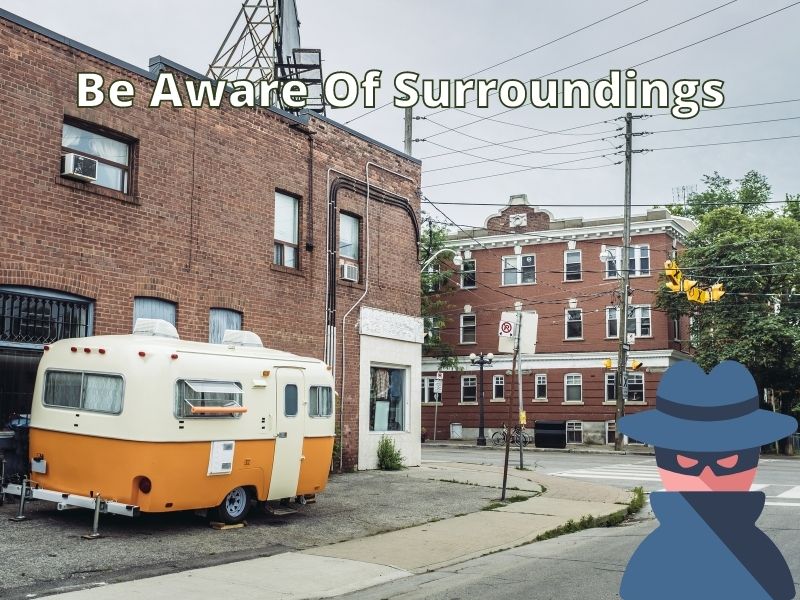
To find the perfect spot to park, you need to go with your gut. Use your instincts and your common sense. If an area seems dodgy and unsafe, move along. Take note of the foot traffic, any loitering figures, and the level of activity around you.
No matter where you park, make sure there’s a clear exit nearby, just in case. After a bit of trial and error, you’ll easily be able to identify good spots and bad spots just by looking at them.
Prepare a Defense Strategy

This is where the conversation usually gets heated, especially between people who have different views on the subject. How do you defend yourself when you may or may not be doing something illegal?
Van break-ins are usually the result of an opportunistic thief stumbling across your van by accident. The fact of the matter is that it’s tough to beef up the security of your van.
One option to secure your van itself is to bolt the locks on your doors, keep the key inside with you, and place metal grates on the window.
If you’re in a bear country, you’ll need a bear container or other devices to keep food away from bears. Keep it away from your tent and anything else that has an odor.
In terms of physical confrontations, there’s always the possibility that you’ll end up in one while you’re stealth camping. While you should obviously avoid this type of situation as much as possible, you need to be prepared should one arise.
That’s why it’s a good idea to take a couple of self-defense classes or take lessons in martial arts such as MMA, Krav Maga, or Jujutsu.
Pepper spray is popular amongst stealth campers. While a highly effective deterrent, the risk with using pepper spray is that you might get back-sprayed, which will make driving away incredibly difficult.
Bear spray is often used in place of pepper spray, but it’s important to remember that the can itself is bigger and heavier than a pepper spray canister and only 10% as potent.
The last defense option is to get a license and carry a firearm. We are hesitant to even mention this as an option because it’s such a touchy subject to many.
In some states, the laws and legislation about carrying a firearm are completely different from those enforced by other states.
Final Thoughts
When you get stealth camping right, your life will change forever and you’ll never want to park in a designated spot again. This is a unique experience that will provide you with an adrenaline rush like no other and instill in you a sense of adventure that few people truly experience.
When stealth camping goes wrong, it can ruin your whole perception of it and even have some pretty harsh consequences. This is why the key to becoming a successful stealth camper is simple – practice.
It sounds silly, but practice stealth camping in your backyard, driveway or anywhere you won’t get caught – except perhaps by nosy neighbors who will wonder what the heck you’re up to this time.
Slowly move further and further away from home and take your practice runs to your street, local parks, and grocery store parking lots, and before you know it, you’ll be prepared for the real deal.
Always keep in mind that, as is the case with all types of activities, there are risks involved with stealth camping. But if you follow the tips in this article, your chances of stealth camping successfully will dramatically increase.
So, what do you say – are you going to try your hand at stealth camping, or is this one activity that you’re
Are you going to skip?
Thanks for visiting Helpshoe.com

